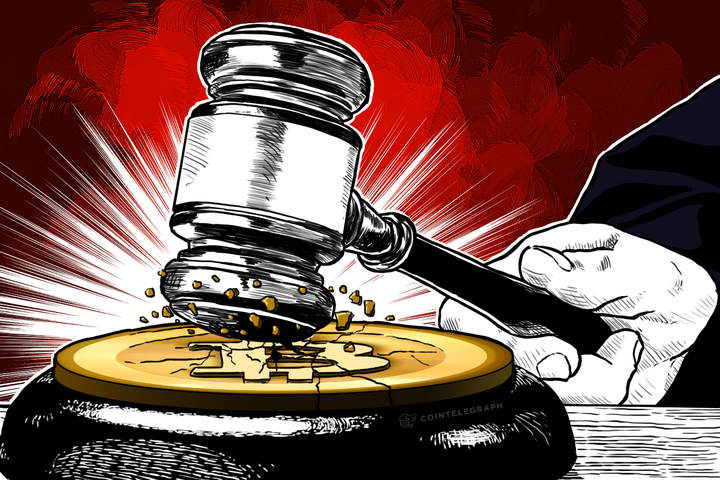As sittings on the Silk Road trial entered the second week, federal prosecutors presented a pile of evidence detailing the early days of the iconic digital black market. Revelations included the website creator's personal notes and the birth of the operator's alter-ego Dread Pirate Roberts.
Matters are not looking good for Ross Ulbricht, the alleged mastermind behind the dark-market website, while the trial is quickly shaping up to become the most fascinating Bitcoin-related trial to date.
Arguably worst of all for Ulbricht is the evidence found on his laptop computer, which FBI agents snatched from his desk while they distracted him in a San Francisco public library in September 2013. Most importantly, this evidence included a folder named “journal,” which chronicled the history of Silk Road from the perspective of its operator.
That's right. Ulbricht seemingly kept an extensive digital record of his actions and thoughts during the years he ran the famed digital black marketplace in 2011 and 2013. Why? The journal’s author recorded the reason:
"Some day I may have a story written about my life and it would be good to have a detailed account of it."
Based on this journal, the creator of the Silk Road had a very firm grasp of what he was building. "The idea was to create a website where people could buy anything, anonymously, with no trail," one entry from Ulbricht's computer read, while another account described the sale of self-grown magic mushrooms, and stated:
"Silk Road will become a phenomenon and at least one person will tell me about it, unknowing that I was its creator."
Another entry mentioned how the Silk Road saw a huge boost in sales because of a Gawker story, followed by another entry suggesting that Ulbricht, or whoever wrote the journal, decided to hire employees after earning about US$25,000 a month and US$100,000 in total.
Prosecutors also presented a plethora of chat logs from both the Silk Road forum as well as Gchat. According to these chat messages, Ulbricht—or whoever wrote as “myself”—had even bigger plans for Silk Road: the online dark market was supposed to be just the start of a dark net emporium.
Ulbricht allegedly planned to turn Silk Road into a brand, including Silk Road messaging tools, a Silk Road exchange, and even a Silk Road credit union. And, more importantly perhaps, the author of the chat messages at one point identified himself as “DPR,” the initials of Dread Pirate Roberts.
The blows to Ulbricht's defense this week followed a spectacular first week of sittings, in which Ulbricht's attorney Joshua Dratel shocked friend and foe by proclaiming that although Ulbricht did indeed create the TOR-based anonymous Silk Road marketplace, he was not the man who ran the Silk Road as Dread Pirate Roberts for the greater part of its existence. Instead, he suggested that Mt. Gox CEO Mark Karpeles might have been the real mastermind behind the website. It was also revealed that DHS special agent Jared Der-Yeghiayan had suspected the well known Mt. Gox CEO for quite some time.
Many of these bombshell revelations were defused as the second week of trials opened, however. In response to a motion from prosecutors, Judge Katherine Forrest ruled that Der-Yeghiayan's statements regarding his suspicions about Karpeles would be declared inadmissible. Only questions concerning physical evidence and provable facts related to Dread Pirate Roberts’ identity were to be allowed in the courtroom.
For similar reasons, the jury was not allowed to read an interview Forbes' Andy Greenberg conducted with DPR in 2013, while questions regarding a third suspect—a mises.org forum moderator with similar linguistic patterns as Dread Pirate Roberts—were cut short.
A good friend of Ulbricht testified against him on Thursday. According to this friend, who helped Ulbricht with programming problems from time to time, Ulbricht told him everything about the Silk Road, making him one of two people with whom Ulbricht had shared his secret—the other being Ulbricht’s girlfriend.
Bates explained how Ulbricht was specifically endeavoring to establish the Silk Road as a digital dark market for drugs, and how he even personally sold him some magic mushrooms, which mirrored the journal entry and thus countered the defense's suggestion that evidence may have been planted on Ulbricht's computer. The only thing that did support the defense's story was this friend's belief that Ulbricht sold the Silk Road to a second owner in 2011.
However, chat logs essentially shot down this story as well. While chatting with Variety Jones, alleged right-hand man and mentor at Silk Road, Ulbricht confessed in 2011 to telling two of his friends about his involvement in Silk Road. Although, he continued, “they think I sold the site and got out a month ago.”
Jones came up with an additional solution:
“Have you even seen The Princess Bride?”
He was referring to a character in the film who earned the name Dread Pirate Roberts from the previous owner of a Pirate ship. “Start the legend now,” Jones said. Ulbricht allegedly replied, “I like it.”
Did you enjoy this article? You may also be interested in reading these ones:


